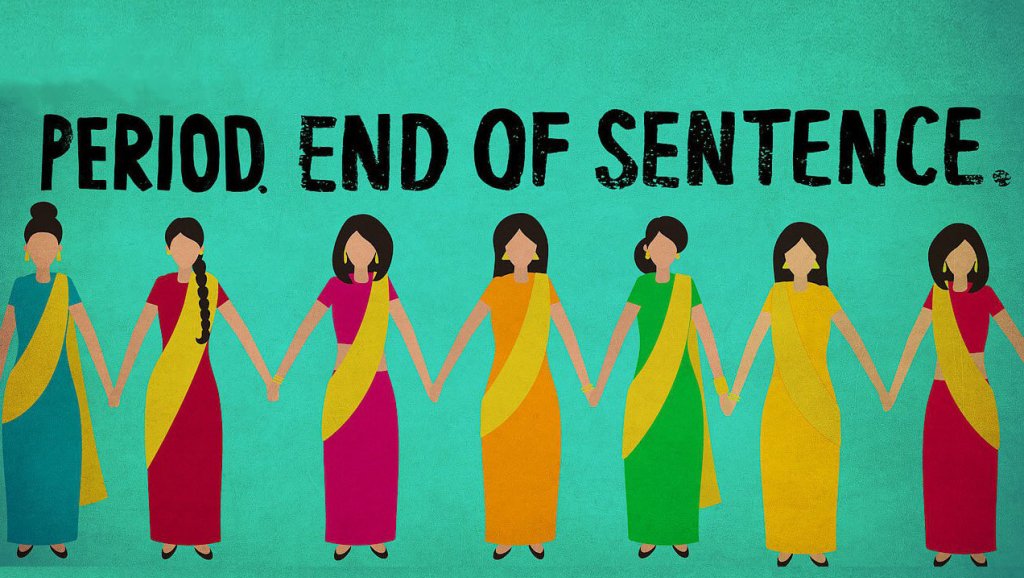What is a period? Why do girls and women bleed? What is a pad? Asking these questions may seem meaningless and commonplace to you and I, but for the women and school girls of Katikheda, many are unable to answer. Whether their silence is due to their lack of knowledge or the stigma still attached to menstruation, the lack of conversation surrounding the topic was exactly what director Rayka Zehtabchi was trying to tackle in the Oscar-winning short documentary ‘Period. End of Sentence’. The documentary focuses largely on period poverty in a rural Indian village and how a period should only be used to end a sentence, not a girl’s education.
“It’s something only God knows. It’s the dirty blood that is released”. This was the response an older woman gave when asked what her period was and is a perfect example of the deep-rooted stigma surrounding periods in this part of India. A period is primarily regarded as “dirty” or a disease that only afflicts women, but, somewhat perversely, it is also used as an indication that a girl has become mature, something which sadly makes her a prime target for sexual assault. Therefore, the silence can act as protection for the young girls, keeping them safe from the unwanted advances of men. While this shows us that the intentions of the women in the village are good and noble, it has still had adverse effects on the lives of girls and women. It has meant that some women didn’t even know what a pad was and how to use them, something which is not only due to the lack of conversation surrounding periods, but also because many women are either unable to afford them and even if they could, finding a shop stocking them nearby is still rare. This film thus shines a light on the privilege many of us have, from access to basic education regarding menstruation, to unbarricaded access to period products. The lack of access to basic sanitary products is halting these young women’s lives, impeding their ability to work and continue with education. For example, one woman detailed that she waited a year for “things to change”, implying she thought her period would stop happening, but because nothing changed, she left school.
‘Period. End of Sentence’ was funded largely by students from Oakwood School in Los Angeles through bake sales, Kickstarter and other crowdfunding projects. Zehtabchi directs this film beautifully and the jaunty score enables us to feel empowered and enthusiastic while we watch women create their own pads and fight the stigma surrounding the natural process of menstruation. While cinematically the film is beautiful and well produced, the true stars are the women being interviewed. There is a lot in this film that is heart-warming and gives us hope, but it also points to the deeper issues rooted within different societies and the connotations still attached to menstruation. There are moments where it is painful to watch, the discomfort of the women and girls radiating from the screen, but this film is not a sob story, and rather than being guided towards feelings of pity for the women in Katikheda instead we are shown that women are both powerful and are often unaware of the power they have. This film is a refreshing change in tone and pace from the usual bleak representation of developing nations and the people that live there. Instead, the film focuses on the positive changes being made by women in a country long looked at through the lens of pity and sorrow by the rest of the world.
If you would like to find out more about period poverty and how you can help visit www.thepadproject.org.
Image Credit: Netflix

